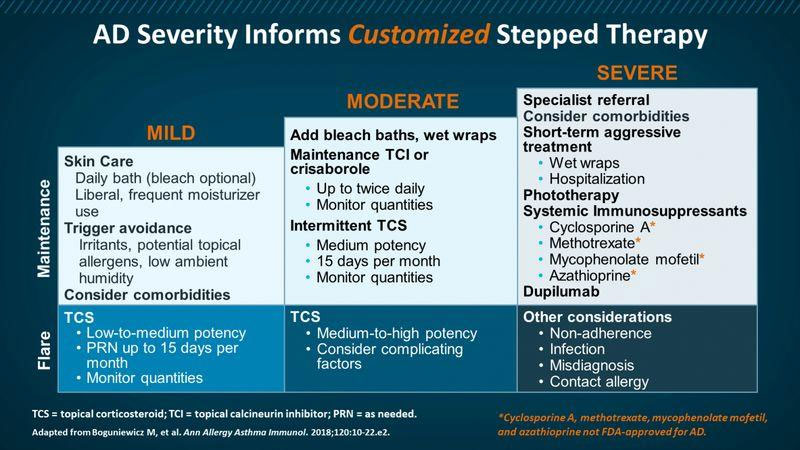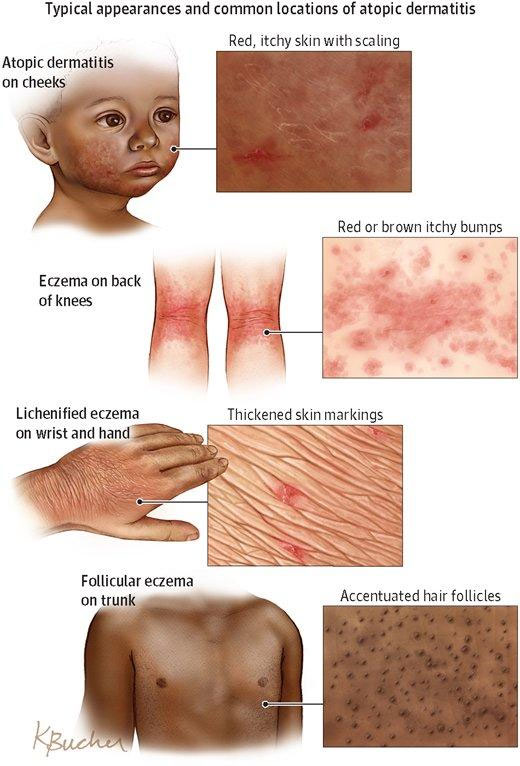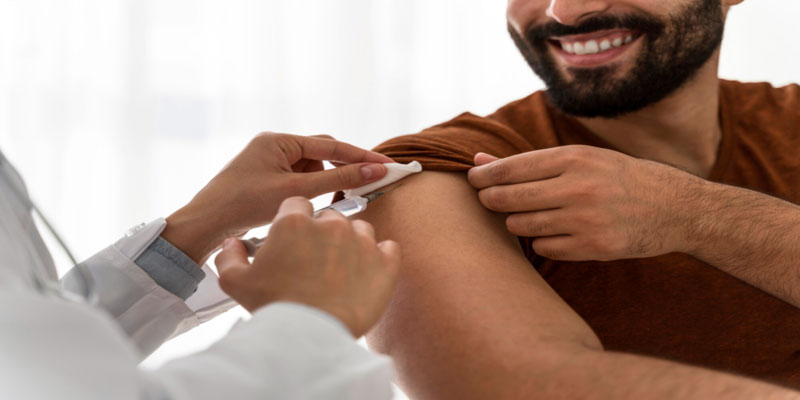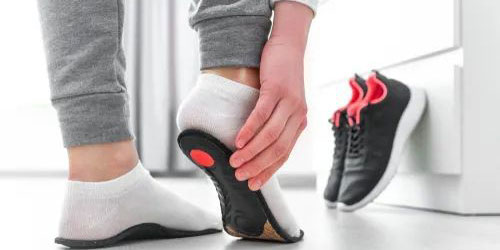Most Effective Atopic Dermatitis Treatments
Nov 15, 2023
Introduction
Atopic Dermatitis is a skin disease that occurs when the body's immune system becomes hyperactive and reacts against otherwise hard-to-notice irritants such as soaps, detergents, e.t.c. This reaction causes itching and the formation of patches all over the skin. If the patient itches carelessly, the patches can burst, oozing pus all over the skin, causing further pain and patches to form. Currently, no treatment exists, but there are multiple ways, such as using moisturizers to negate the symptoms and allow for easier living.
Treatment Based on Severity
No single treatment method can help every case fight with atopic dermatitis as, depending on severity, you will need a different set of treatments. Home remedies and taking care to avoid irritants have proven to be enough to treat against mild levels of the disease; however, in severe cases, the skin's condition becomes extremely critical, so extra care and taking medicines become a necessity. Below, Detailed Atopic Dermatitis Treatments have been listed depending on the severity of the disease.

Treatment for Mild Atopic Dermatitis
The important thing that has to be done to prevent the worsening of the disease is to avoid any potential triggers such as allergy-inducing elements and low humidity, as allergies will cause the further triggering of the immune system, which will cause a worsening of the condition. To avoid a flare-up, the patient should take low amounts of TCS and PRN. After preventing further damage, the next step is to treat the disease in its current state. There are two very effective ways to treat mild atopic dermatitis. The first way is to bathe daily, and the second is to use moisturizers.
Bleach Baths
Using properly diluted bleach in the bath is recommended as it will kill the bacteria on your skin without causing further irritation or damage to the skin. It is advised to bathe daily. However, bleach should only be used 2 to 3 times a week as excessive bleach baths can cause your skin to dry and break at spots through which bleach can enter internal layers and cause pain. Care must be taken while bathing not to burst the skin pouches.
Moisturizers
Moisturizers keep the skin moist and lubricated, reducing the risk of bursting any skin pouches when your body parts rub against each other due to movement. Different moisturizers contain different materials. They have different effects, such as:
- Aloe vera moisturizers aid in the healing process and reduce skin inflammation.
- Petroleum jelly containing moisturizers repairs the skin environment barrier and reduces water loss, keeping the skin moist.
- Niacinamide is important for the body, especially the skin, as it helps in keratin production, which is one of the building blocks of skin. Niacinamide also aids the skin in making a lipid barrier, increasing the amount of water the skin can retain.
Treatment for Moderate Atopic Dermatitis
In moderate cases, wet wraps around affected areas and bleach baths should be used for relief. Wet wraps should be used when there is severe pain or itching; It is to be applied after you have already used moisturizers on the affected area of the skin. The wet bath keeps the moisture from evaporating into the environment and ensures that the skin remains moist for the longest time. However, using wet wraps for extended periods can cause issues such as skin infections. Medium doses of TCS taken intermittently for about 2 weeks per month have proved to be effective at reducing the active time of the disease.
Treatment for Severe Atopic Dermatitis
Hospitalization is necessary for treating severe disease levels, and phototherapy is the most commonly used treatment method. UV light is applied to the entire body or the affected area for about a minute or so. Phototherapy will stop itching and inflammation for a short while, giving your skin the chance to heal naturally. It is advised to avoid the sun and use lots of moisturizers on the day of treatment as it leaves your skin dry, which can cause sunburns and other issues. The Food and Drug Administration-approved immunosuppressants such as Azathioprine, Ciclosporin, and Mycophenolate are effective treatments.

Conclusion
Atopic Dermatitis is not a lethal or highly contagious disease, so not much attention is given to it by others, but how it affects the lives of those it appears to cannot be downplayed. It is a severe condition that greatly diminishes the life quality of those affected. It is important to identify the symptoms of the disease early on and begin treatment as soon as possible to reduce the duration and intensity of the disease. It is advised to start treatment immediately if any signs of disease appear.





